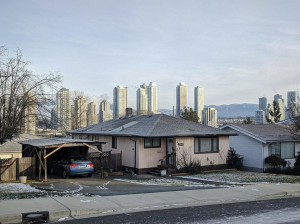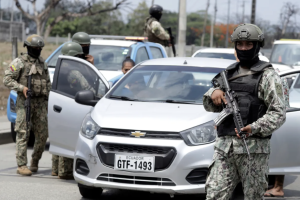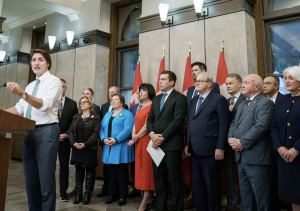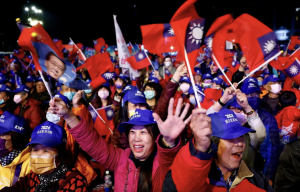Prof. Antje Ellermann discusses the “arduous” Canadian visa requirements facing Palestinian citizens
Professor Antje Ellerman explains that the “arduous requirements” for Palestinians applying for Canadian visas are deemed necessary by the government. Ellerman discusses how the perception of Canada’s refugee treatment changes with each conflict.
Prof. Stewart Prest on the Canadian implications of another Donald Trump presidency
Trump won the New Hampshire primary, putting him one step closer to winning the Republican presidential nomination. Professor Stewart Prest discusses Trump’s path to the nomination and the Canadian implications if he wins the Presidency.
Prof. Stewart Prest explains how housing reforms are “reorganising” the playing field
Professor Stewart Prest explains that increased federal and provincial involvement in housing is a way to “short circuit…tools of infinite delay” and emphasizes that the cost of housing in British Columbia is “an issue with national implications.”
Prof. Max Cameron explains the “dramatic shift” in Ecuador’s drug policies
President Daniel Noboa’s recent military crackdown on drug gangs is “one of the most dramatic shifts in South American politics in recent years,” according to Professor Max Cameron. Gang-related violence has been rising in Prisons since 2022 but recently reached new heights.
UBC Alumna Grace Lore is B.C.’s new Minister of Children and Family Development
MLA for Victoria-Beacon Hill and UBC Alumna Grace Lore was promoted to B.C.’s Minister of Children and Family Development in a January 2024 cabinet shuffle. Lore is an alumnus of our Undergraduate and PhD programs.
UBC POLI and IR alum Hannah Simone illuminates the small screen with her performing abilities
Best known for her role on New Girls, Hannah Simone graduated from UBC in 2002 with a Bachelor of Arts in international relations and political science.
Prof. Michael Byers discusses the genocide case against Israel with CBC’s The Sunday Magazine
Professor Michael Byers explains how the International Court of Justice functions and the possible implications of the hearings in the genocide case against Israel.
SaskEnergy’s decision not to pay the carbon levy is “an extrodinary moment in Canadian democracy” says Prof. Kathryn Harrison
Trudeau’s removal of the carbon tax for home heating oil opened the floodgates for climate policy conflict. Professor Kathryn Harrison explains that SaskEnergy’s recent decision to stop collecting the Carbon Levy is a “horrifying” breach of constitutional law by a provincial government.
Op-ed: “Taiwan’s democratic institutions the clear winner in this month’s elections” says Prof. Yves Tiberghien
Professor YvesTiberghien explains that Taiwan is at the heart of strategic tensions, but voters have prioritized socioeconomic issues over geopolitical issues.
Op-ed: Prof. Yves Tiberghien says “expect a very intense and volatile last week in the [Taiwan] campaign.”
Recent polls show the DPP as the leader in Tawan’s elections, but Professor Tiberghien explains that Taiwanese elections are often decided in the last few days leading to an election because of breaking information and news. Many are concerned about potential Chinese influence through social media.









![Op-ed: Prof. Yves Tiberghien says “expect a very intense and volatile last week in the [Taiwan] campaign.”](https://poli.cms.arts.ubc.ca/wp-content/uploads/sites/31/2024/01/Screenshot-2024-01-11-at-21.44.28-300x151.png)